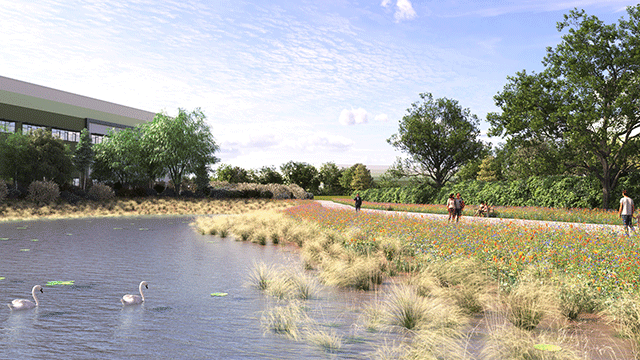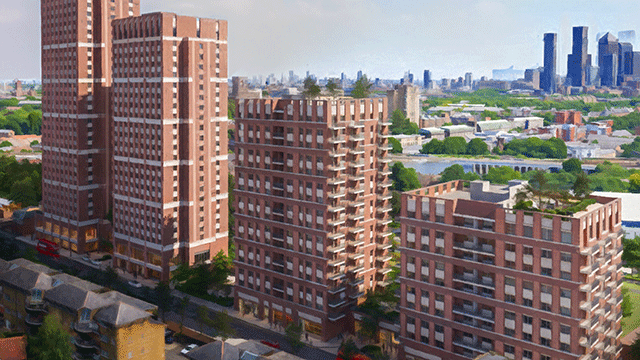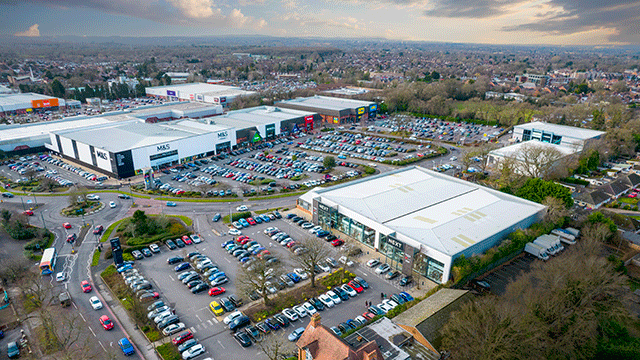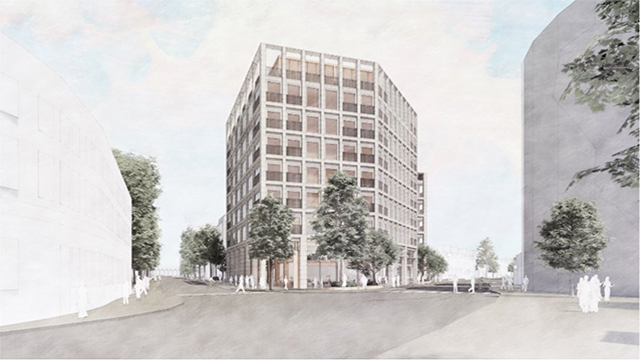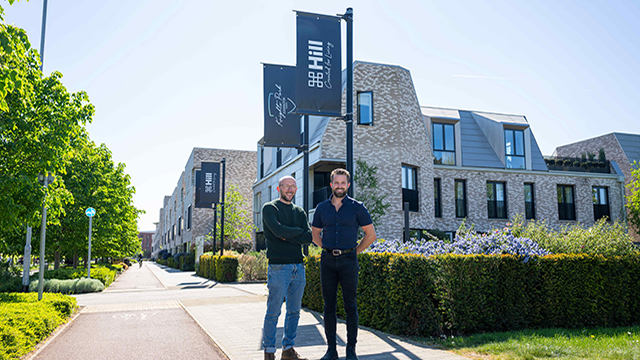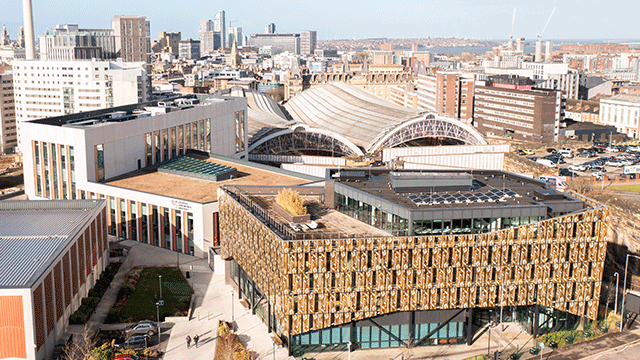Adam Lawrence, chief executive of housebuilder London Square, admits he is unlikely to be on the dinner party list of Mark Clare, chief executive of his former employer, Barratt.
The reason is not just that Lawrence left Barratt to set up London Square as a competitor in the capital’s residential market, it is that he was followed by a series of Barratt staff who decided to throw in their lot with Lawrence and move to the new company to work with him.
To name just a few, London Square’s finance director is Peter Ford, former regional finance director with Barratt; Rebecca Littler, Lawrence’s sales and marketing director, was previously Barratt’s youngest-ever sales and marketing director; Andy Maciejewski, construction director at London Square, was previously projects director at Barratt, where he spent 24 years; and Mark Smith, development and technical director at London Square, was head of development at Barratt west London. There are more, but you get the point.
Lawrence says that Barratt’s chief executive, Clare, played a key role in the start-up of London Square, mainly because, intentionally or not, he spurred Lawrence to go it alone.
Separate ways
Lawrence admits that he “fell out of love” with Barratt, where he had become managing director of the group’s west London division. When Lawrence talked to Clare about his lack of feeling, the Barratt chief executive said: “Well, what else are you going to do?”
Lawrence says: “That made me want to do it even more. When I left Barratt I had my heart in my mouth, but you have got to back yourself, haven’t you?”
Fortunately, it was not just Lawrence backing himself, but some serious finance, too. The company was launched with £100m supplied equally by Graphite Capital and a bank loan. Graphite now owns the majority of the company, but Lawrence and six senior directors have 22% of the shares between them.
Lawrence admits he organised the launch finance for London Square while still at Barratt – “Basically I raised £100m on my iPhone” – and neither he nor London Square have looked back since.
Continuing to be the Pied Piper, Lawrence’s Barratt PA, Michelle Cosgrove, also followed as he set up first in an office in Broadwick Street (in an office rented from Shaftesbury Group). From there the company moved to near Uxbridge, partly for more space and partly so Lawrence could be closer to home. A father of three, he jokes thathe skillfully selected the office to be “close enough to where I live, but not close enough for me to do the school run”.
On their first day at the new company, Lawrence remembers saying to Cosgrove: “Right, you find us an office and I’ll get a finance director.”
Since it was set up in 2010 (on the not particularly auspicious day of 1 April), London Square has grown considerably. It now employs 55 staff, has a £45m turnover and has had an additional injection of equity from Area Property Partners.
It has been a hectic three years and Lawrence admits to “drinking my own weight in coffee” in the early days in Broadwick Street, although now you are just as likely to see him drinking green tea. He runs triathlons, too: on the weekend after we spoke he was due to run the Olympic distance event at Merchant Taylors’ school, and this year he will run the London triathlon.
But mostly it is work. And despite that £45m turnover he is under no illusions that London Square is not yet a big hitter in national terms, even though he is very proud of the quality of the work it does.
Developer rewards
He has so much faith in his team that he says he prefers a flat market where house prices do not rise too much, as flatter markets tend to reward more able developers. Less skilful ones, Lawrence argues, can be bailed out in boom times by rapidly rising property prices. But in the team at London Square he believes he has assembled enough talent to make money in all conditions.
That faith has been mirrored in the deals that London Square has pulled off, not simply in financing, but in the land and sites it has acquired.
In one of the more recent deals, the company acquired the 2.5-acre Richmond HQ of Royal Star & Garter homes for £50m, with a view towards residential redevelopment. The main building was put up in 1924 and totals more than 180,000 sq ft, over eight storeys.
Other developments include 42 one- and two-bedroom flats in Leonard Street, 60 more near Ruislip Station, some luxury flats in Putney and 10 homes of between three and six bedrooms in Wimbledon Village; Bermondsey, Hayes and Teddington are among London Square’s other sites.
Lawrence says that because many of the developments so far have been in some of the most affluent boroughs of south-west London, it has pushed the average selling price of a London Square home up to £1m which, he says, “is too high – I want to lower that if we can”.
This could mean more homes in places such as Ruislip, where two-bedroom London Square flats sell for a (relatively) cheap £300,000. “Ruislip gets just as good a return as Wimbledon,” he adds.
Over the next year or two, Lawrence suggests that London Square will be aiming at developments in zones 4-6 of outer London, partly because of his view that the very centre of town is difficult because of the weight of overseas money investing there.
And where to for London Square in the medium to long term? Is there an exit strategy? A buyer or a public listing is a possibility, admits Lawrence, although anything of this sort is likely to be at least five years away, as the full benefits of the original £100m investment start to accrue.
Could London Square even find itself being bought by Barratt, from where so many of its staff came? It is possible, says Lawrence, but perhaps less likely than a contractor putting in a bid. This is largely because any interest from another housebuilder, which by definition will already have its development capability already in place, would just be for London Square’s land bank. A contractor, on the other hand, might be interested in the firm’s ability to manage projects from start to finish as well.
In any event, it sounds as if Lawrence and his team will have fun on the journey, wherever it might lead. Will any more staff be making the move from Barratt? You never know, but if they do it will not be for more money, says Lawrence.
He says: “I make a point of not offering people more money to come here. The important thing is they want to be here.”
Biography
Adam Lawrence, chief executive of London Square, has more than 20 years’ experience in the housebuilding industry.
Having joined Barratt in 1997 as a sales manager for Barratt west London, Lawrence became sales director and then managing director of the Barratt west London division in 2000 and 2002, respectively. He served as chairman of the Barratt London & Thames Gateway region from 2006 until March 2010, overseeing Barratt east London, Barratt west London, Barratt Kent, Ward Homes, David Wilson Homes Eastern and Barratt Eastern Counties.
During his time as regional chairman, he was responsible for around 3,100 homes being built a year, generating a turnover of around £800m. He was responsible for the Barratt west London division, which became one of the three leading profitable operating divisions within the group. Under his leadership, Barratt also became the largest provider of affordable homes in Greater London, providing more than 800 homes a year.




